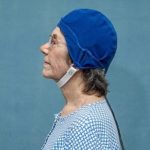Research news
Find out about research study findings and developments
Five tips to support people with dementia and carers while in lockdown
27 April 2020

Lockdown and social distancing are essential to help combat COVID-19, but adjusting can be difficult – especially for people living with dementia. That’s why researchers have developed a new leaflet with five simple tips, designed to help make things more manageable for anyone who currently lives with dementia or cares for someone who does. The leaflet gives practical and self-help tips on five key points, and has been created using the latest robust research with the input of people affected by dementia.
Dementia fears for former footballers
25 October 2019

A recent study has found that the risk of dying from neurodegenerative disease is almost 3.5 times higher for footballers. However research is at an early stage and there’s currently no suggestion that anyone should stop playing football. Regular physical activity – including football – is a good way to reduce the risk of dementia and conditions such as heart disease.
Electromagnetic ‘bathing cap’ shows promise in early Alzheimer’s disease trial
23 September 2019

In a new study, researchers designed a bathing cap-style head device, called the MemorEM, which was used to deliver electromagnetic waves to the brain. The purpose of this was to try to dissolve what are known as oligomers – groups of abnormal proteins – as they were forming. There was some sign of improvements on tests of thinking and memory in most of the people taking part in the study. This is an experimental, early-stage study that looked primarily at safety, so it cannot tell us for sure if the treatment works.
Over 20,000 research participants recruited through Join Dementia Research
5 August 2019

We’re pleased to announce that over 20,000 study participants have been involved in vital research thanks to Join Dementia Research. We would like to sincerely thank all the volunteers, researchers, champions and partners who have given their time so far. If you haven’t already, please sign up, and if you have, please help us spread the word so we can bring more volunteers and researchers together.
Healthy lifestyle reduces dementia risk even in those with genetic risk factors
22 July 2019

A new study suggests that regular exercise, not smoking, drinking sensibly, and eating a healthy diet have been found to reduce risk of getting dementia even if a person has a higher genetic risk of developing the condition. There are some limitations to the study, but overall the findings are good news. We cannot change our genetics, but this study suggests that regardless of this, changing our lifestyles could help everyone reduce their dementia risk.
Widely used class of drugs linked to dementia
26 June 2019

Researchers have found that use of anticholinergics was linked with between a 6% and 49% increased risk of dementia, depending on the dose and duration of use. With this type of study, it is always difficult to prove direct cause and effect. Nevertheless, this is an important finding that needs looking into further. But it’s important that people do not stop taking any prescribed medicine without speaking to their doctor. The risk from stopping the medicine may be far higher than any dementia risk.
Can doing a daily crossword or Sudoku puzzle keep your brain young?
22 May 2019

In 2 linked studies, researchers found that people who said they did puzzles regularly did better on tests of cognitive ability. However, the research does not definitely show that doing puzzles made brains “sharper”. Or that doing puzzles staves off dementia in later life. It could be that people who have better cognitive abilities are more likely to do number or word puzzles in the first place.
New type of dementia discovered
2 May 2019

Researchers have identified a new form of dementia. Known as LATE, it shares many similarities with Alzheimer’s disease, but tends to lead to a more gradual decline in memory. LATE (limbic-predominant age-related TDP-43 encephalopathy) appears to be linked to the accumulation of a protein called TDP-43 in the brain, whereas Alzheimer’s is linked to the […]
Eye test can pick up Alzheimer’s, study claims
13 March 2019

This article has been reproduced from the NHS website. “Alzheimer’s disease can be spotted through simple eye test,” reports the Daily Telegraph. A new study has found that people with Alzheimer’s had fewer blood vessels and less blood flow in the retina (back of their eye). The Alzheimer-linked eye changes were detected by an eye test that uses […]
‘Small’ increase in risk of Alzheimer’s disease with HRT use, study suggests
11 March 2019

This article has been reproduced from the NHS website. “Millions of women who take HRT pills may face a greater risk of Alzheimer’s,” warns the Mail Online. A study identified all postmenopausal women in Finland who’d been diagnosed with Alzheimer’s disease over a 14-year period. It compared their use of HRT (hormone replacement therapy) with a group of […]
